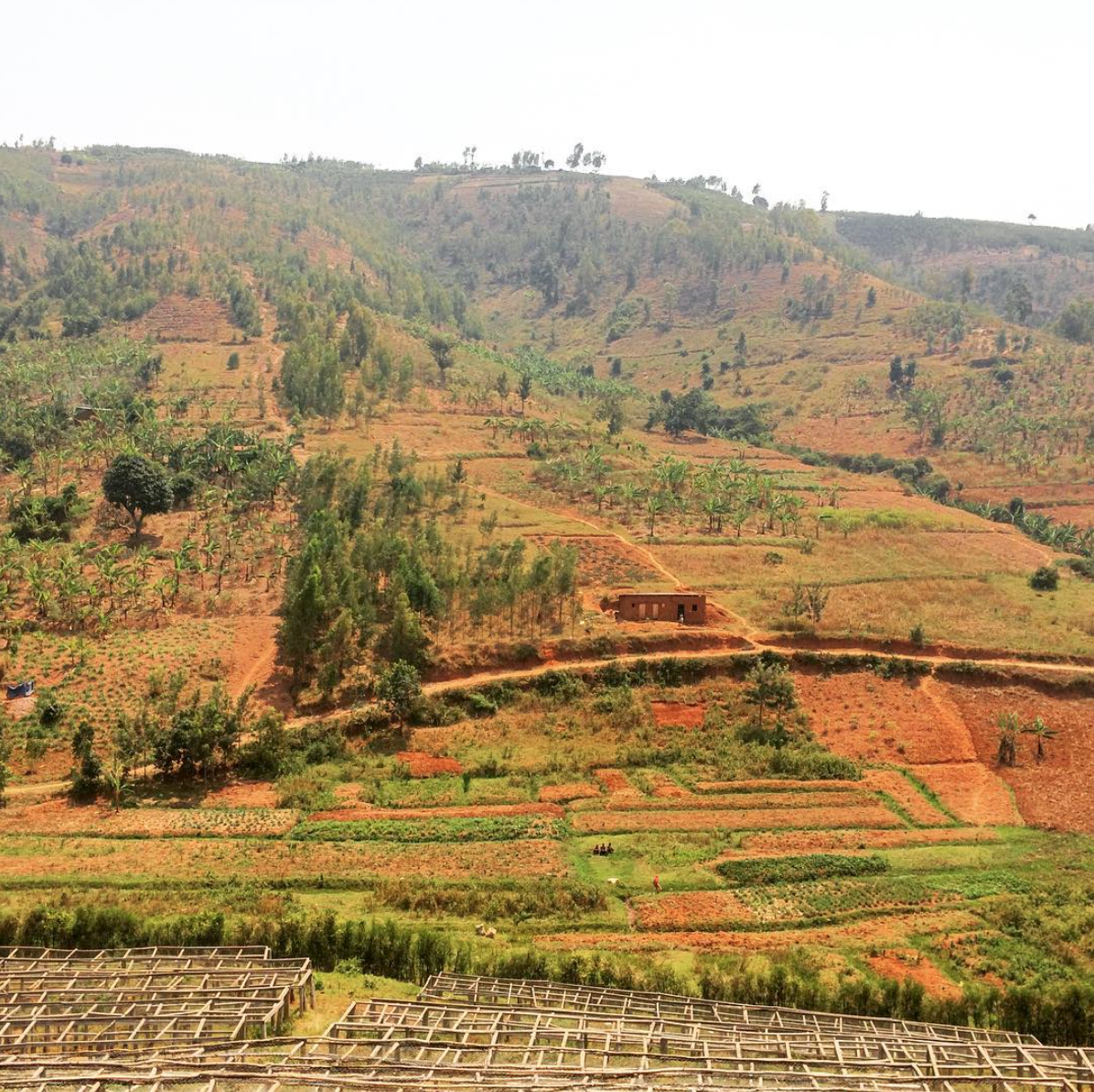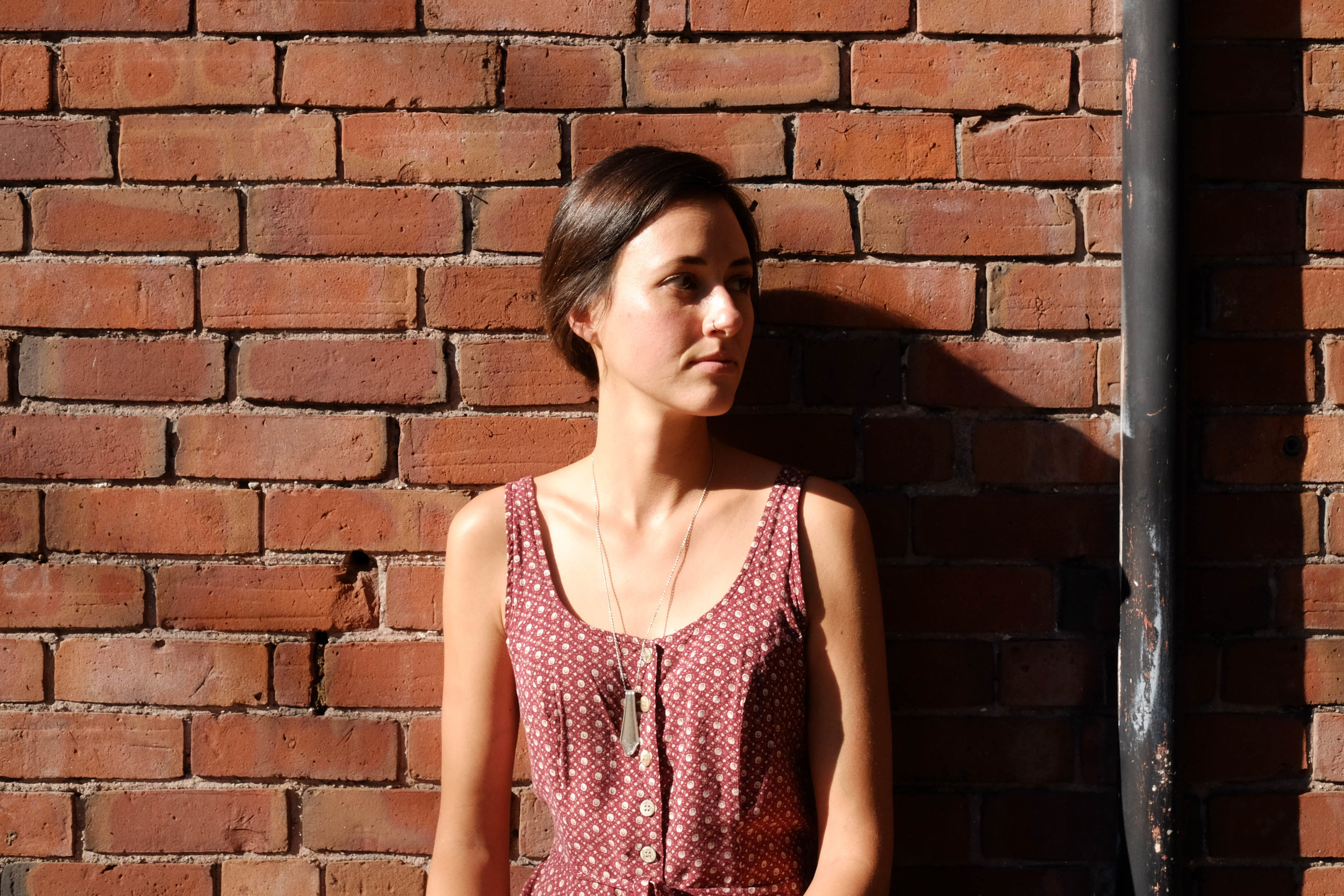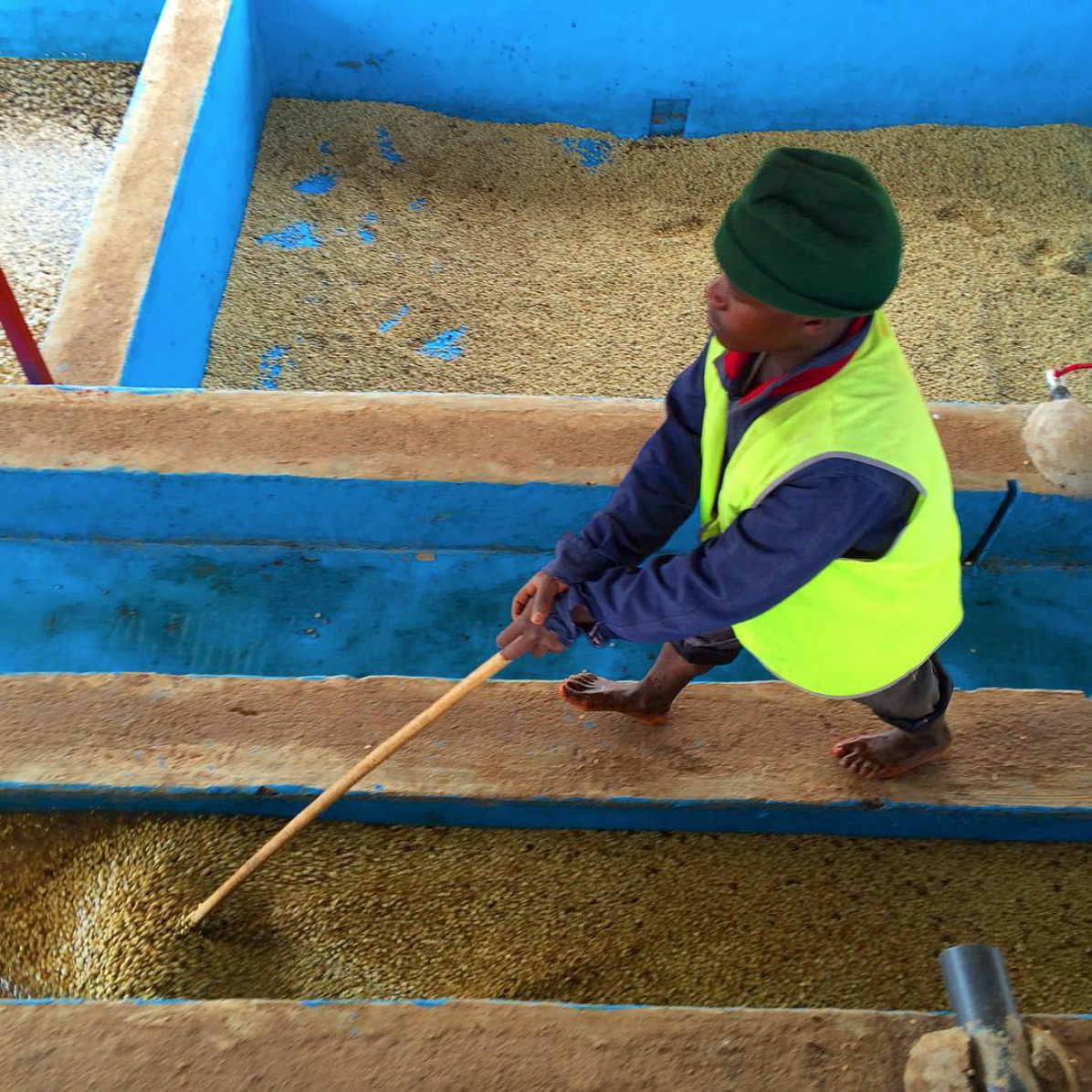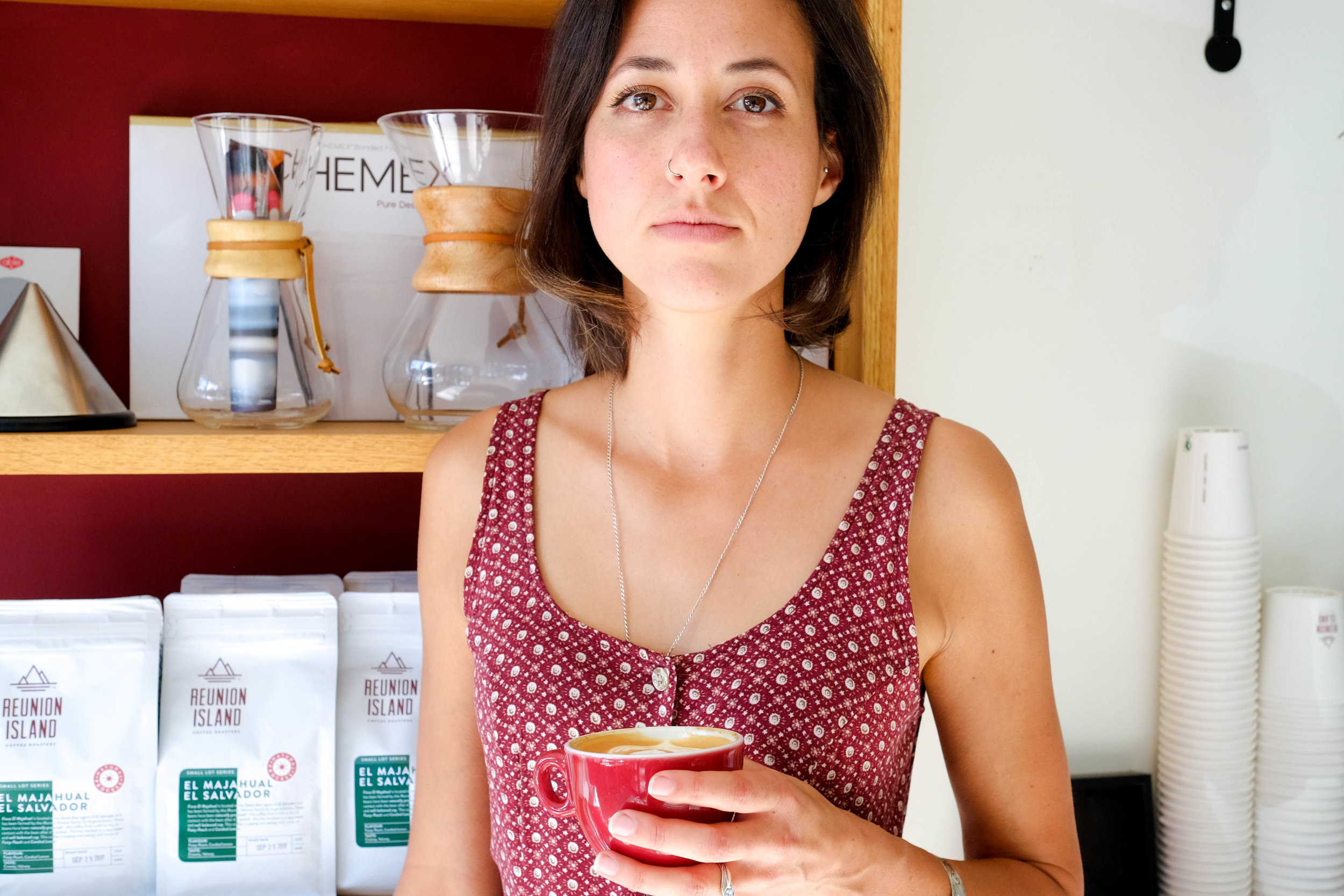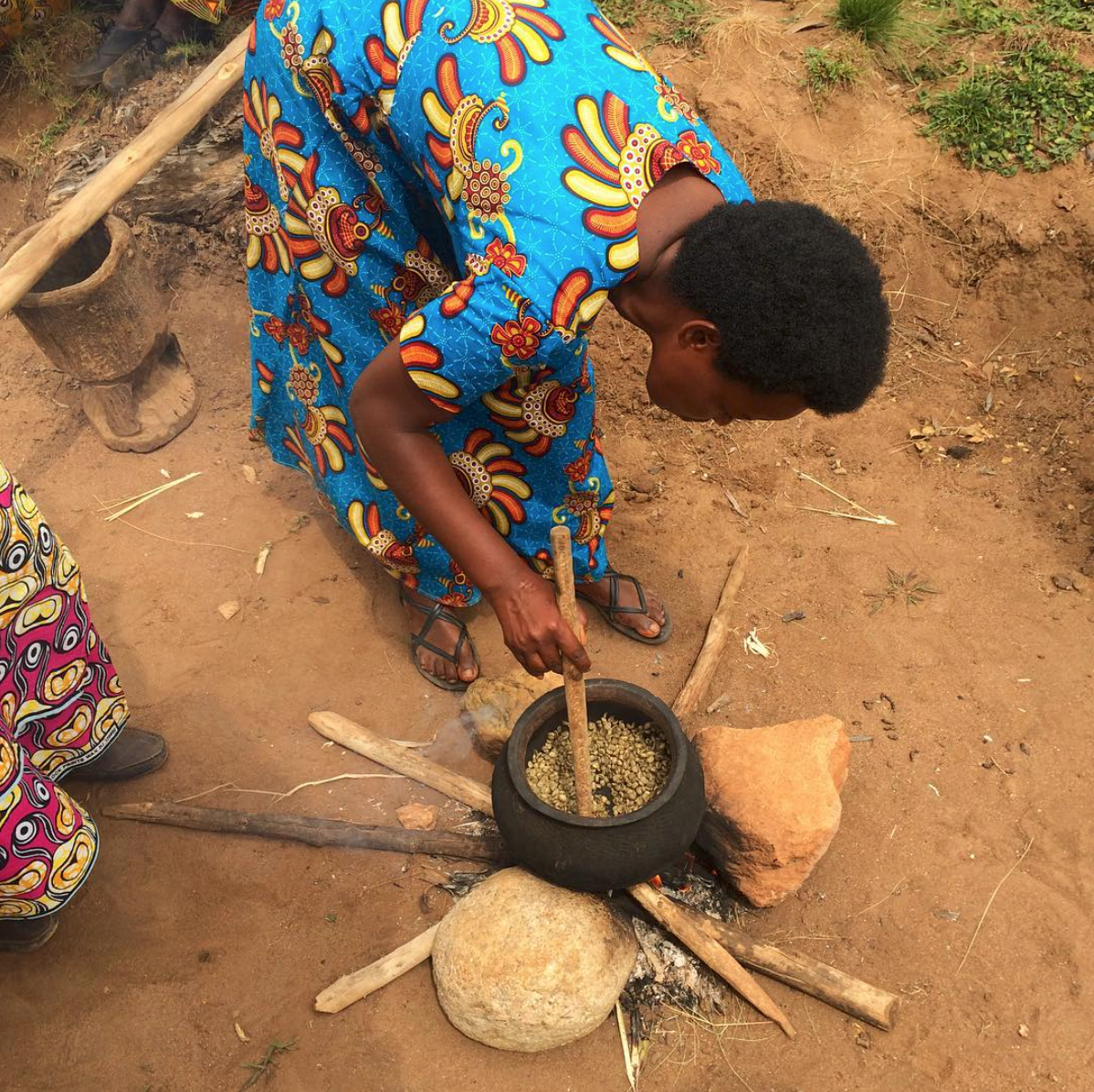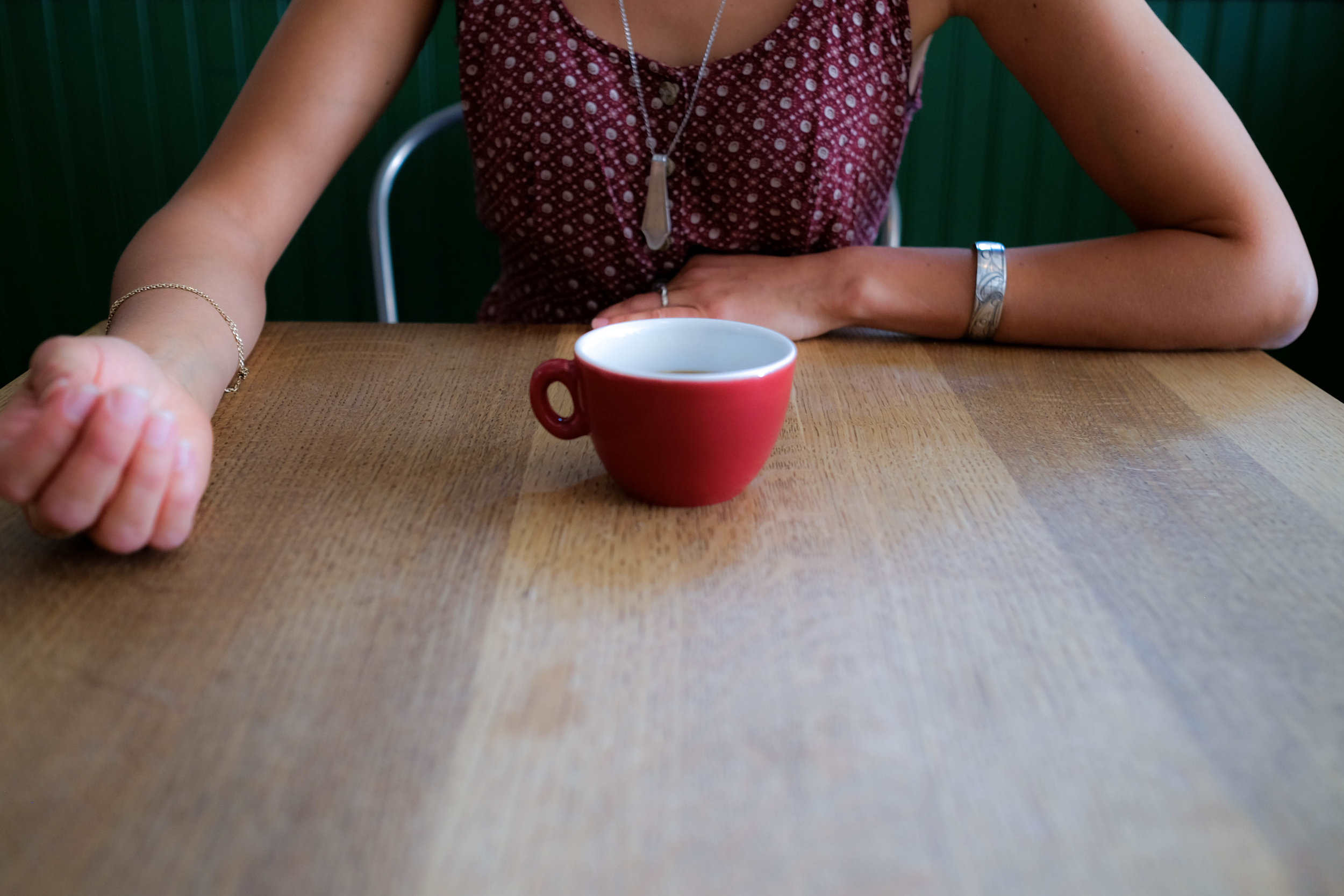Women Coffee Producers' Empowerment in Rwanda | Interview with Aleida Stone

I have to admit that sitting down to read through 140 digital pages of a research paper on female coffee producers in Rwanda didn't seem like it was going to be an easy or particularly compelling task. However, after only a few swipes of the cursor into Aleida Stone's Graduate School thesis titled, "Developing Ourselves: Examining Women Coffee Producer Empowerment and its Facilitation in Rwanda," I was completely captivated. Between the exploration of Rwanda's unique post-war coffee growing landscape, the brief comparative history of gender disparities in other agricultural sectors, and the recent accounts from female coffee producers themselves, it quickly became apparent that this kind of academic research, critical thought, and reflective work is exactly what we need to invest in and read more of if the coffee industry is to progress.
Aleida Stone has spent the better part of the last six years working in coffee—first as a barista, a roaster, and a wholesale account manager. After completing her Master's Degree in Development at Toronto's York University—which included a three-month stint conducting research in Rwanda for her aforementioned thesis—she is now carving out a career for herself in producer relationship development. It also seems critical to mention that this past April (and only days after Aleida turned in her graduate school paper), she landed in Seattle to attend Re;co Symposium as the recipient of the 2017 Randy Worth Fellowship. Out of a group of 39 fellows, Aleida was awarded this honor which aims to highlight people working in the field of sustainability and education in specialty coffee. Her work is significant.
Today I am absolutely delighted to share an interview with Aleida Stone which takes us on a journey to the coffee growing regions of Rwanda. Through Aleida's photos and words we catch a glimpse into the beauty of this country while digging into some of the opportunities and challenges she faced collecting data for her Master's thesis. Above all else, I hope you enjoy learning a little bit about the systems and practices that facilitate the empowerment of female coffee producers in Rwanda from Aleida as much as I have. After all, it is only in understanding how others develop that we can begin to 'Develop Ourselves.'
tLBCC: How did you get into specialty coffee?
Aleida Stone: Like most, I blindly stumbled into specialty coffee. After finishing my Undergraduate in International Studies I traveled across Central America visiting community-based agriculture projects (even by chance spending two weeks planting coffee trees in Honduras!). Once I arrived back home to Vancouver, and in need of a quick paycheque, luck would have it that I was hired by Matchstick Coffee Roasters. This inspiring company and its wonderful people quickly showed me that specialty coffee can embody everything I am most passionate about and had seen firsthand on my travels: sustainable agriculture and supply chains, farmer capacity building and wellbeing, and gender equity. I could not help but fall head over heels with the possibilities of the industry.
tLBCC: What took you to Rwanda?
Aleida Stone: While I was in the midst of debating where to conduct my Masters’ research, my partner traveled to Rwanda to speak at Sustainable Harvest’s Let’s Talk Coffee conference. Hearing his stories about the projects taking shape in coffee communities there, and particularly about the active role of women within them (not to mention the heart-stopping scenery), it did not take much convincing on his part for me to decide to go to Rwanda. Plus, to be completely honest, when it comes to travel, I cannot help but be drawn to the path less traveled.
Rwanda as a state, space and culture is fascinating, and has relatively recently begun to gain notoriety in the specialty coffee industry. It is not without deep scars though from its colonial past–as it continues to be unfairly perpetuated by those who do not care to allow the country to evolve–and the infamous ‘potato defect.’ Both of these challenges contribute to wide opinions of Rwanda as ‘underdeveloped.’ Conducting research in Rwanda was therefore an opportunity to highlight the country for what it is today and where is it heading from both academic and coffee professional perspectives.
tLBCC: Can you tell us a little bit about your experience in Rwanda? What city or town were you based in?
Aleida Stone: For three months I lived in Kigali, Rwanda’s capital. This is an incredibly scenic and diverse little city (fantastic Korean and TexMex..), and was a great hub for conducting my research. Within the city, I connected with and interviewed export companies and other supply chain actors, and from there I travelled with relative ease to the country’s various coffee producing regions in order to visit washing stations and interview their owners and managers, and most importantly women coffee producers.
In general, Rwanda is a breathtakingly beautiful, safe, diverse and gripping place to visit and learn more about. Go!
"Journey from crop plot to wet mill." Photo by Aleida Stone
Photos by Aleida Stone
tLBCC: What does the coffee industry look like in Rwanda? Is it progressive in comparison to other coffee growing regions? If so, why?
Aleida Stone: The progressive nature of Rwanda’s coffee industry is up to interpretation. On the one hand, the average coffee producer in Rwanda owns around 150 coffee trees; in global terms, this is minute and, perhaps to many, seems futile. On the other hand, the government of Rwanda, many washing station owners and some export companies are working to develop policies apparently in the name of coffee producer wellbeing and profitability. These supply chain stakeholders are acting on the premise that with no more land for expansion of quantity, the best (and perhaps only) way to develop the export coffee sector is to establish itself as an origin of extremely high quality specialty coffee. Doing so is expected to ensure that families will be interested in and can be successful in utilizing coffee production and processing as a means to sustainable livelihoods. Stakeholders are therefore developing incentives for advancing quality through Farmer Field School programs, in order to provide livelihood benefits and equip families with gender sensitivity training. Clearly this list of features is simplified, though the latter do point to ways in which Rwanda’s specialty coffee sector is pushing boundaries and which other producing and consuming countries should take note of.
Washing Station Art. Photo by Aleida Stone
tLBCC: How do you define empowerment?
Aleida Stone: Big question! Empowerment is not one thing; it means something different to everyone, and by nature (I believe) is therefore not to be interpreted on behalf of someone else. It draws on countless aspects of life, such as emotional wellbeing, family relationships, social standing, physical health and economic capacity. Accordingly, forming an understanding and definition of ‘empowerment’ was by far one of the most challenging elements of this study. I hesitated to interpret the experiences of other women since clearly there are inherently flaws in any definition. For the sake of research, though, it was necessary to create guidelines along which I could systematize what I was seeing and being told throughout my time in Rwanda.
In short, I conceptualize the complex and dynamic nature of ‘empowerment’ by borrowing elements from other literature and, most importantly, through the analysis of women producers’ own descriptions of themselves and their experiences. In doing so, this study characterizes ‘empowerment’ as an individual’s capacity to transform themselves and their active decision-making in order to do so, as well as their ability to make strategic choices to control their resources and decisions. In other words, empowerment is combination of a ‘process of change’ and ‘agency.’
"This week was the graduation of hundreds of women from a year-long training program." Photo by Aleida Stone
tLBCC: Your thesis focuses on three sites of agency to the empowerment of women coffee producers—can you give us a summary of what they are?
Aleida Stone: Indeed, the findings of this study reveal three particular areas within the relationship between women producers and washing station owners, in which the women producers interpreted whether and to what extent this relationship facilitates their empowerment. These area–or ‘sites of agency’–included: training, assets and access.
Firstly, training received from washing station owners can contribute to the income a woman producer earns, as well as a greater perceived value placed by others on her role as a member of the household. Secondly, assets (such as agricultural inputs, cash and kitenge fabric) received from washing station owners as premiums for quality coffee cherries can act as visual indicators of the woman’s efforts and, in turn, contribute deeply to the positive validation she receives for these efforts from family and community members, all of which can ultimately encourage her to choose to continue pursuing them. Lastly, access to physical washing station contributes to her credibility as a businessperson in the eyes of others and her ability to participant in social life and receive social support outside of her home. These factors can significantly impact her social standing and the economic and social resources she has access to for solving household challenges. In short, evidence from this study shows that the outcomes from the three sites of agency can support, at least in some ways, a woman producer’s genuine capacity to strategically make decisions regarding herself and her household, and her sense of identity as an active agent in doing so–in other words, her ‘empowerment.’
"The graduation of over 2000 women from a year long training program for the production, harvesting and processing of specialty coffee, and supporting a healthy household. A crowd of outstanding leaders." Photo by Aleida Stone
“That moment when you realize how much you truly love what you do. Today, members of a cooperative cupped their harvest from this season right at their own washing station - coffee they grew, harvested and processed themselves." Photo by Aleida Stone
tLBCC: For those that may not be familiar, what is a washing station? And, why is the relationship between coffee producers and washing stations a critical point to focus on for women’s empowerment?
Aleida Stone: A washing station (also known as Wet Mill) is the physical area and infrastructure where coffee cherries are processed typically as ‘fully washed’ coffee. Here, coffee cherries tend to undergo mechanical de-pulping (in which the fruit is removed from around the coffee bean), washing and fermenting, grading for quality, sorting for defects, and drying. At the end of the processes performed at the washing stations, coffee is referred to as parchment. The reason for the emphasis placed on washing stations by this study is due to the fact that, surprisingly, beyond its influence on quality, our industry tends to underestimate the value and impact that washing stations have on the supply chain and its producers. In fact, a washing station can be a key point of contact between producers and all other stakeholders.
In the case of Rwanda in particular, before the country’s push to produce quality ‘fully washed’ coffee, women’s role in the supply chain was a great deal more laborious and insecure than it even is today. Women worked harder in order to produce lower yields and quality due to lack of access to technical training and support, and were limited in their access to stable markets and ownership over the income generated by their labour. Since then, the development of washing stations has helped relieve some of this burden. The time consuming nature of processing coffee cherries at home is now carried out by mechanical equipment, leaving a woman producer with both more time and opportunities to participate in other activities outside of her home. Washing stations in many cases also provide training and technical support to producers. Furthermore, washing stations tend to be geographically closer to communities–or at least their collection sites–than are markets where they would have previously had to travel to. Washing stations tend to provide a relatively more transparent and secure locale for cash transactions, and even before being processed, coffee cherries sold to washing stations already tend to garner a higher price for the producer household due to the anticipated end quality of the product. Most importantly, washing stations can act as a space for women to congregate, providing them greater opportunities to leave their homes and engage in social and other economic activities. In having access to washing stations as spaces for congregation, women producers indicate being able to discuss household issues and financial problems, as well as, in many instances, having access to small loans provided by community-organized groups or a cooperative for solving these problems. In essence, the emergence of washing stations in Rwanda has evidently played a significant role in the capacity of women within the coffee supply chain and, in turn, the evolution of their ‘empowerment.’
"Fresh cherry delivery." Photo by Aleida Stone
tLBCC: What was your experience collecting data and conducting interviews? Who did you have the opportunity to talk to?
Aleida Stone: Primary qualitative research is hard! As much as I thought I had prepared before hand, it was only until being there and experiencing the day-to-day that I was able to make sense of how to approach data collection. One of the most meaningful learning experiences included understanding the need to appreciate the intricacies and complex impact that culture has on communication styles. I had to, for example, learn to not underestimate differences in how someone says something, as well as the meaning before what someone does not say.
I had opportunities to spend time with and observe different stakeholders groups (including women coffee producers, washing station owners/managers and export company staff), speak to around fifty individuals one-on-one and organize a focus group of women coffee producers. These different data collection methods and participant groups allowed me to see the many unique perspectives of the supply chain in a rigorous and inclusive way, particularly in the case of women producers whose voices tend to be overwhelmingly undervalued and talked over.
“Sample cupping: One washing station, two different weeks of harvest, three separate hills.” Photo courtesy of Aleida Stone
tLBCC: Were there any significant challenges or biases that emerged in the interview process? In particular, were there any limitations you experienced as as a result of your gender?
Aleida Stone: Challenges? Every other minute of every day. The simple reality of physically and verbally navigating through a new country is challenging, let alone attempting to do so as a privileged foreigner and independent researcher. The nature of these challenges included (though by no means limited to) ethical considerations involving historical context, cross-cultural dynamics and sensitive industry relations.
Industry stakeholders inherently had biases towards me which influenced their willingness to share their stories with me accurately and wholly. Inevitably, these challenges were followed by misleading, misunderstood and incomplete data in some cases. Furthermore, I had to challenge myself to be reflexive regarding my own inherent biases that come with being a white, educated and foreign female coffee professional. I caught myself making assumptions about individuals and their experiences, and using my position of apparent authority to access information which and people who may not have otherwise been available to me. I had to try to account for these challenges and their consequences in order to best understand what was actually going on around me.
tLBCC: It was mentioned several times in your thesis that acts of charity are not beneficial to women’s empowerment? Can you share a little bit about this?
Aleida Stone: Indeed, drawing on the definition of ‘empowerment’ that I used to guide this study, I believe that it is not necessarily beneficial to an individual’s empowerment to be treated as a charity case. Rather, coffee producers in general, and women specifically, can more likely benefit from being treated like the hardworking businesspeople that they are. In my society, an individual is less likely to feel valued and dignified when they are labelled as a charity case. Why then would I assume that people elsewhere in the world would feel differently? There is pride and self-worth, and in some cases ‘empowerment,’ that can come from, or at least be facilitated by, being regarded as competent and valuable.
In fact, by definition, charity may not even allow for the facilitation of ‘empowerment.’ I found overwhelmingly that interview participants regarded most highly the skills and assets that they earn themselves through business relations, not the things handed to them as welfare recipients. In the act of earning them, the women producers contribute to their capacity to ‘change’ and to their ‘agency.’ I believe this a crucial element to keep in mind, requiring deep consideration by anyone attempting development endeavours. It is important to treat each other as capable equals in order to help each other grow.
Photo by Aleida Stone
tLBCC: One of the assets you discuss in your thesis is Kitenge. Can you share with us what Kitenge is, and what the significance of Kitenge is in the empowerment of female coffee producers?
Aleida Stone: I’m so glad you ask about this—this was one of my favourite discussions within my study! So simple yet so underrated. Kitenge is traditional African textiles. Along with pieces of technology and agricultural inputs (such as radios, cellphones, rubber boots and hoes), kitenge is at times offered to producers by washing station owners as an earned asset. Though the technology assets are valuable, it became clear after speaking with women producers that kitenge has remarkably deep contextual significance to their identity. Kitenge is used to make clothing, and clothing can help reshape the way women producers are perceived by their households and communities, and, in turn, themselves. In many instances, arguably, kitenge has supported women’s capacity to more actively participate in society and the economy by allowing her to physically leave the house as well as be recognized as a smart and successful individual.
I experienced instances in which foreigner ‘development’ stakeholders questioned the practicality of the women’s choice of kitenge over a cellphone, contending that technology is clearly evidence of ‘development.’ In making such an assumption, I believe there can be real and potentially harmful consequences for individuals’ wellbeing. Clearly, in such an instance, by not taking the time to understand what is actually needed and valued by women, their families and communities, washing station owners (and the development sector more broadly) risk indirectly inhibiting women’s personal development, and risk reinforcing a top-down colonial-centric approach to development.
"Coffee cherry Collection." Photo by Aleida Stone
"It is respect between women and men. Don't force men, and men don't force women. To sit here on the mat, we discuss what is going on and we find a solution" Photo by Aleida Stone.
tLBCC: Have the results of your research on women coffee producers in Rwanda impacted the way you think or feel about women’s empowerment in the coffee industry here—on the consuming end of the supply chain?
Aleida Stone: Business, nonprofit and academic perspectives from the Global North, unfortunately–though unsurprisingly–tend to make assumptions about the needs and wants of women in more ‘developing’ areas of the world. There is a tendency to assume that women require rescuing from their current circumstances, and that the answers for how to do this stem from ideologies of the progressive ‘developed’ world. I too fell into a similar trap during my data collection. For example, during one-on-one interviews with women producers, I begged the question ‘‘what would make your life ‘better’?” What I figured would be an opportunity for women to discuss their personal values and goals actually turned out to create tension between us. Left with responses that made me initially assume that the interpreter was not properly expressing my intent, I attempted to reword the question multiple times in an effort to draw out a particular type of response. I eventually realized however that interpretation, of course, was not the issue. In fact, the issue was my western, neoliberal, white feminist conditioning that was guiding my interview questions. What is ‘better’? ‘Better’ than what? ‘Better’ than whom? Though seemingly simple, the term ‘better’ is loaded with implicit assumptions and expectations, none of which can be assumed to be universal. I had to realized that in questioning their contentment, I was assuming that the lives these women lead are not fulfilling enough. This of course is not at all necessarily the case. Their lives are simply different than mine.
My research and experience in Rwanda reinforced for me how important it is to keep in mind that no one can fully understand other people’s circumstances and what they need and want within these. Furthermore, it called attention to the fact that my own society struggles on a tragically deep (though widely disregarded) level with ingrained gender norms and biases. What is the ratio of women to men who own a coffee roasting company? Who are competing in barista competitions? Rwanda highlights how, by no means, we on the consumption end of the supply chain have all the answers. Rather, we still require significant work in order to create equitable environments within which everyone feels supported and empowered to reach any goal.
tLBCC: How do you hope to see the results of your research influence the specialty coffee industry?
Aleida Stone: It is increasingly acknowledged that the trade of coffee is fraught with debilitating power dynamics, that gender relations can be harmful to individuals, their families and communities as well as the industry as a whole. The value of this study therefore, I believe, is in its contribution to, and enrichment of, this existing yet still young discussion. These issues need to be talked about over and over and over again in an effort to demonstrate their gravity, and encourage more resources and investment to be directed towards research and research-base actions.
tLBCC: Is there anything else you'd like us to understand about the empowerment of female coffee producers?
Aleida Stone: Regarding women and any other marginalized population: people are not the same, we each have unique experiences, needs and wants. It takes time to appreciate these and to target them effectively for development efforts. As an industry, we must put in the effort to take this time rather than continuing to treat issues with a top-down, assumption-based approach—we owe it to the millions of individuals worldwide who are the most crucial key to ensuring that the rest of us have a present and future career in–and morning cup of–coffee.
Connect with Aleida Stone: aleida.stone@gmail.com
* if you are interested in a summary or copy of Aleida's research, please don't hesitate to contact her






